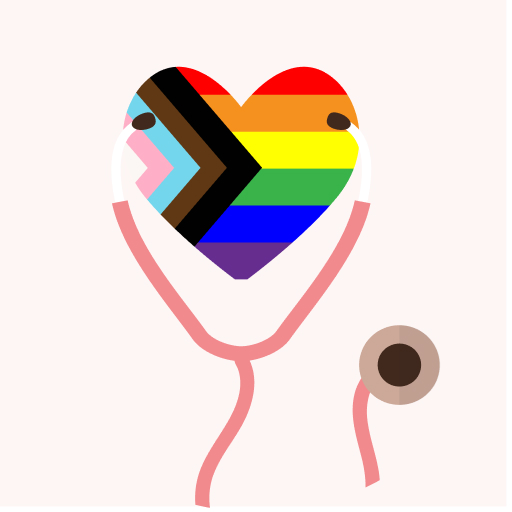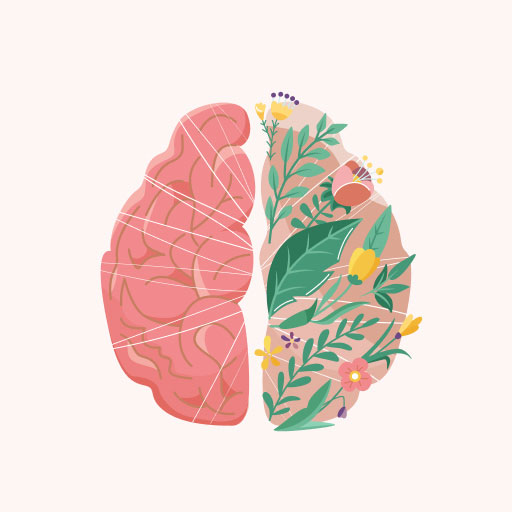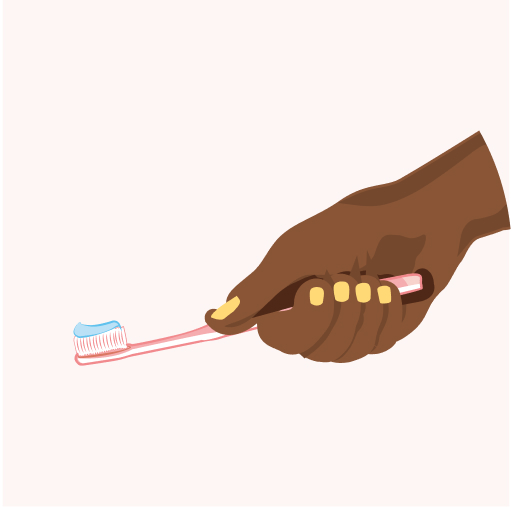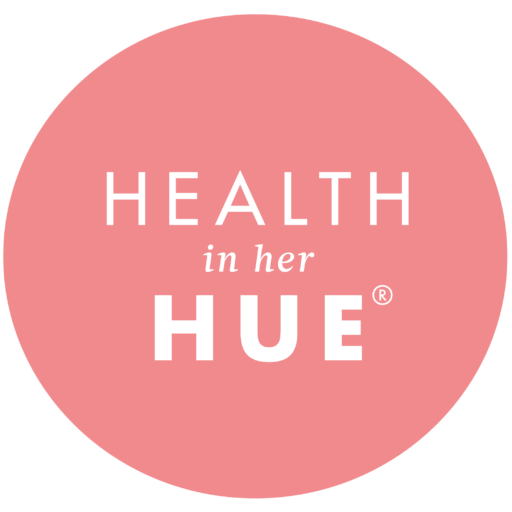
Beyond Just Being Tired: Unpacking Sleep Disorders for Black Women and other Women of Color
Let’s get one thing straight: We are not lazy. We are not dramatic. We are not overreacting. For too long, Black women have been conditioned to push through, to be strong, to “suck it up” and keep going, no matter how much our bodies and minds are screaming for a break. We’ve all been there—you wake up after what you think was a full night’s sleep, but it feels like you just closed your eyes for ten minutes. You’re dragging yourself out of bed, relying on coffee to get through the morning, and the brain fog is so thick you can barely remember where you put your keys. You snap at your partner, have zero patience for your coworkers, and your body feels heavy and achy. We call it “just being tired,” but what if it’s more?
What if the exhaustion we’ve normalized isn’t just a side effect of our demanding lives, but a sign that something is fundamentally wrong? We have to stop accepting chronic fatigue as our normal and start listening to our bodies. Because real talk: rest isn’t a luxury. It’s a basic human right. And it’s a right that Black women, in particular, have been denied for far too long.
It’s Giving Burnt Out, Not Lazy
For generations, Black women have been the cornerstones of our communities. We are the ones who hold it all down—at work, at home, and in our families. We’re the caregivers, the breadwinners, the emotional support systems, and the cheerleaders. It’s a heavy crown to wear, and while it speaks to our incredible strength, it also puts an immense amount of pressure on our health. This constant state of “go-mode” isn’t a badge of honor; it’s a red flag.
The statistics are sobering, but not surprising. The American Academy of Sleep Medicine reports that over 30 million adults in the U.S. suffer from a sleep disorder, and most of them don’t even know it. But here’s the part that hits home: Black adults are five times more likely than white adults to get fewer than six hours of sleep a night. That’s not a random coincidence. That’s a symptom of a much larger, systemic issue. Black women are at a significantly higher risk for serious conditions like sleep apnea, chronic insomnia, and poor sleep quality.
This isn’t just about feeling tired. It’s about a health crisis that’s impacting our mental well-being, our heart health, our immune systems, and our ability to show up as our best selves. It’s a silent thief that’s stealing our joy and shortening our lives.
The Sleep Thieves: What’s Really Going On?
If you’re getting the recommended seven to nine hours of sleep but still feel like you’ve been up all night, one of these common sleep disorders could be the culprit.
Insomnia
When we hear the word “insomnia,” we usually think of someone tossing and turning, unable to fall asleep. But it’s so much more nuanced than that. Insomnia can also manifest as:
- Waking up several times throughout the night.
- Waking up way too early in the morning and not being able to fall back asleep.
- Feeling mentally and physically drained, even after hours in bed.
The impact of chronic insomnia goes far beyond daytime fatigue. It’s linked to an increased risk of anxiety, depression, high blood pressure, type 2 diabetes, and cardiovascular disease. So, no, that constant tiredness isn’t just a fluke; it’s a medical concern that needs to be taken seriously.
Obstructive Sleep Apnea (OSA)
This one is a silent but dangerous sleep killer. OSA happens when your airway gets partially or fully blocked during sleep, causing you to momentarily stop breathing—sometimes hundreds of times a night. Imagine your body constantly fighting to breathe while you’re supposed to be in a state of rest.
Some of the biggest red flags for OSA include:
- Loud, persistent snoring.
- Gasping or choking sounds during sleep.
- Waking up with a headache or dry mouth.
- Feeling completely exhausted in the morning, despite “sleeping” all night.
And here’s a critical point that’s often overlooked: OSA is not just a “men’s” issue or a “weight” issue. Black women of all body types are disproportionately affected and are often less likely to be diagnosed or treated due to provider bias and a lack of representation in medical research. Untreated OSA puts you at a higher risk for heart disease, stroke, insulin resistance, and even pregnancy complications.
Restless Legs Syndrome (RLS)
Have you ever tried to fall asleep, but your legs feel like they’re buzzing or tingling, and you have an overwhelming urge to move them? That’s RLS, and it’s a lot more common than you might think, especially in women. It can feel like a pulling, crawling, or aching sensation, and the only way to get relief is to move your legs. It’s a vicious cycle that can completely sabotage your sleep before you even get a chance to fall asleep.
RLS is often linked to iron deficiency and is more prevalent in pregnant women and those with certain chronic illnesses. It’s a clear sign that your body is in distress, and it’s a warning you should not ignore.
When Your Body Is In Distress: The Domino Effect of Poor Sleep
When the sleep ain’t sleepin’, your entire system goes haywire. Poor sleep doesn’t just make you cranky; it sets off a domino effect of negative health consequences that impact every part of your life.
- Mental Health: There’s a direct link between a lack of quality sleep and mood swings, depression, and anxiety. Your brain needs sleep to process emotions and regulate your mood. When you don’t get enough, you’re more likely to feel overwhelmed and emotionally drained.
- Cardiovascular Health: Chronic poor sleep is a major risk factor for hypertension, heart attacks, and strokes. Your body uses sleep to repair and restore itself, and without that time, the stress on your heart and blood vessels increases.
- Immune System: A lack of sleep suppresses your immune system, making you more susceptible to getting sick. When you’re constantly on the go and not getting proper rest, your body can’t fight off infections as effectively.
- Cognitive Function: Your memory, focus, and decision-making skills all take a nosedive when you’re sleep-deprived. That brain fog and forgetfulness aren’t just annoying; they’re a sign that your brain isn’t functioning at its best.
- Relationships and Work: When you’re exhausted, your patience wears thin. Your energy is low, and it becomes harder to be present and engaged in your relationships and at work. You’re not showing up as your full, vibrant self.
What You Can Do Right Now
The first step to getting your rest back is to acknowledge that this isn’t just “you.” It’s a health issue that deserves attention and care. Here are some immediate steps you can take to begin your healing journey:
1. Track Your Sleep
Grab a journal or use a simple note app on your phone, or your preferred wearable device. For a week or two, monitor what time you go to bed, how many times you wake up, and how you feel in the morning. Note anything that seems to help or hurt your sleep—like that late-night scroll on Instagram or that cup of chamomile tea. This simple practice will give you a better understanding of your own patterns and what might be going wrong.
2. Talk to a Healthcare Provider
This is the most crucial step. A trained provider can help you determine what’s really going on. They may recommend a sleep study to monitor your sleep patterns, cognitive behavioral therapy for insomnia (CBT-I), or lifestyle changes based on your specific needs. It’s time to find a professional who gets it—someone who is culturally responsive and ready to listen to your unique experiences.
3. Prioritize Rest, Not Just Sleep
Let’s be clear: sleeping is a biological function, but rest is a revolutionary act especially for Black women and women of color. If your body has been throwing up warning signs, believe it. Don’t brush it off. Don’t push through it. Don’t chalk it up to “just stress” or “just getting older.” You are worthy of real rest, real care, and real answers.
Because at the end of the day, you deserve to feel rested, to feel whole, and to have the energy to pursue your joy and goals. Your well-being isn’t a negotiable item; it’s the foundation of your life. And it’s time to build that foundation stronger than ever.
Explore More with Carepoint
If you’re looking for trusted, easy-to-understand information about sleep and how it affects your body, Carepoint is the place to start.
Inside Carepoint, you’ll find short, expert-led videos from providers who break it all the way down — from what different sleep disorders look like to how they show up in our daily lives.
And if you don’t see your specific concern covered? You can submit a question directly. Our community of healthcare providers use your real questions to shape new content and respond with care.
👉 Visit takeda.healthinherhue.com to learn more, start watching, and get answers that meet you where you are.
More Content
General Health
Whole, Seen, and Heard: Dr. Patricia Egwuatu on the Power of Care for Black Women
When you sit across from Dr. Patricia...
General Health
Lupus Signs: What Black Women Need to Know
Lupus symptoms Black women experience are often...










